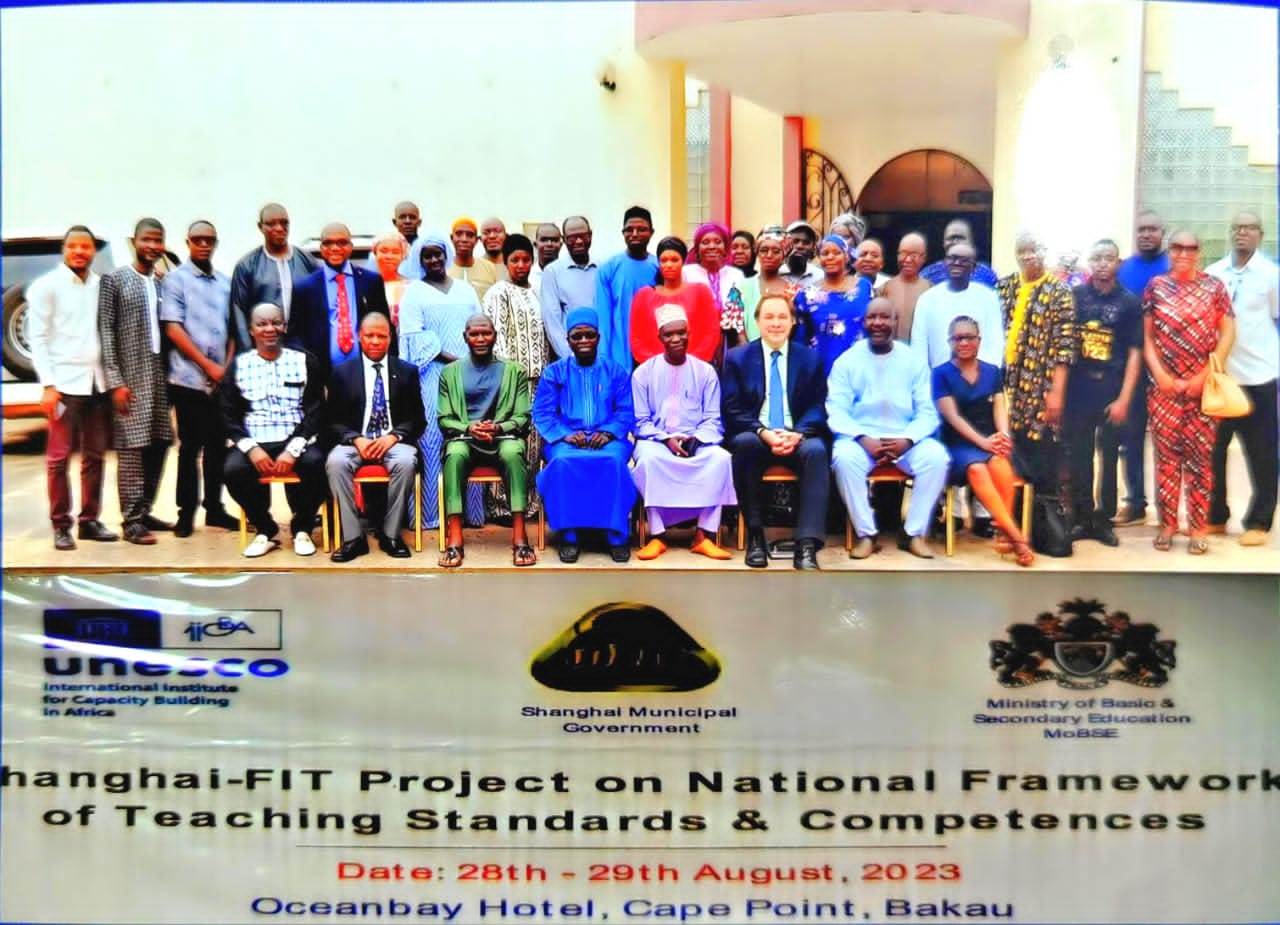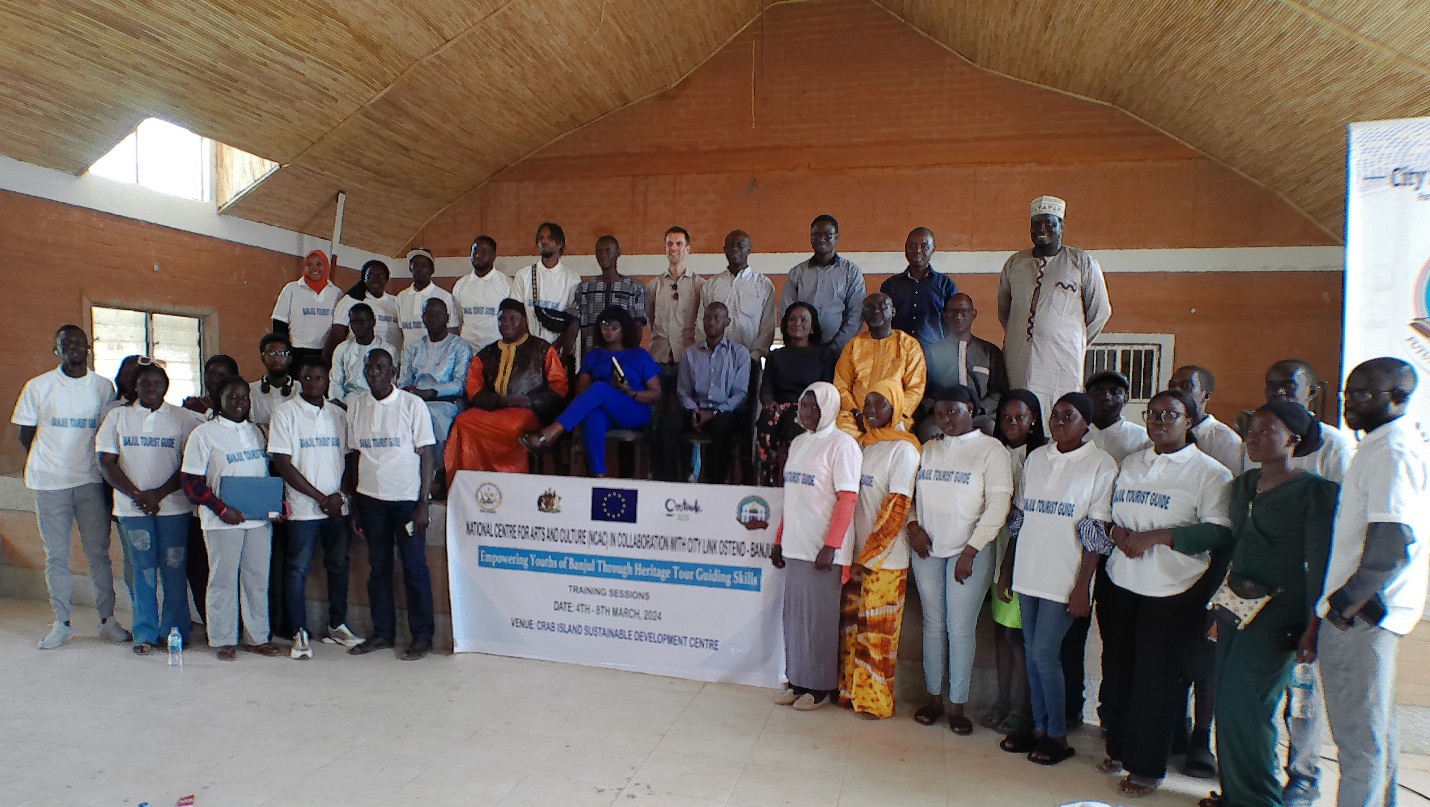By Momodou Jeng & Quentin Wodon
October 5 is World Teachers’ Day. This is a Day to celebrate the essential contributions that teachers make to our children, communities, and society, but also a time to stake stock of where we stand on ensuring that we attract the best into the teaching profession. In August we held in Banjul a validation workshop for a new study by UNESCO IICBA on professional standards and competencies for teachers and school leaders. The study was led by Steve Nwokeocha and Ebrima Kah.
As in much of sub-Saharan Africa, children in The Gambia are not learning enough in school and many drop out prematurely. Improving teaching in the classroom and the quality of the school leadership, including through professional standards and competencies, is the key to improving learning. The IICBA study focuses on three areas: (1) The Gambia’s framework of professional standards and competencies; (2) teacher education; and (3) the working conditions of teachers. The analysis relies on a mixed quantitative and qualitative approach including two online surveys, key informant interviews, and brainstorming sessions. Lessons for The Gambia are likely to be relevant for other countries as well.
What did we find? On professional standards and competencies, the country has made substantial efforts to develop and implement a national framework of professional standards and competencies for teachers and school leaders. However, much of these have not been published, the implementation is still in its infancy, and the framework is not aligned with the global frameworks provided by UNESCO and Education International and those developed by the African Union Commission.
There is also a low level of awareness about these global and continental frameworks among stakeholders. The Gambian Education Sector Strategic Plan 2016- 2030 endorses the development of professional standards and competencies for teachers and school leaders, but its recommendations must be implemented, including creating a career path aligned with the African Union Commission framework. Mentoring, guidance, monitoring, assessment, evaluation, rewards, and other professional support to teachers and school leaders should all be further developed to firmly establish teaching as a profession in the country.

On teacher education, both pre-service and in-service, many issues continue to undermine quality, but there are also important innovations that other countries could learn from. Issues that were identified include: (i) an insufficient of regulatory and quality assurance frameworks for pre-service teacher education; (ii) the dominance of two-year degrees as the qualification in the school system with some teachers not having that minimum; (iii) a need for retraining in many areas; and (iv) a need for strengthening the academic staff and enrolment capacity of the three teacher education institutions. However, a positive development is a new one-year full-time training from MDI in school management and leadership for aspiring leaders, an innovation that could be an example for other countries.
On working conditions for teachers, the career path for teachers should be further strengthened and it could be beneficial to introduce a Best Teacher Award to recognize outstanding teachers. Teachers were asked questions in the online survey on a range of factors that may affect working conditions as well as their overall job satisfaction and perception of their status. On a scale from 1 to 5, teachers rate their social status at an average value of 3.5 and their job satisfaction at an average value of 3.2. The relatively low levels of job satisfaction may be due in part to the level of salaries, but possibly also to issues with the timing of payment of those salaries. On the other hand, almost all teachers described the relationships with their supervisors in their school as good or excellent, a very positive sign.
The IICBA study could be an important milestone on the path to professionalizing teaching and school leadership in The Gambia and beyond. The analysis was conducted within the framework of the African Union’s Continental Education Strategy for Africa (CESA 2016-2025) and Agenda 2063: The Africa We Want. The Gambia is one of several countries selected for analysis and intervention by the Shanghai-FIT Project which covers Africa and the Asia-Pacific to professionalize teaching in both regions and make progress towards the Sustainable Development Goals. Much has been achieved in The Gambia, but much remains to be done to support teachers and school leaders in the best way we can. This matters as teachers’ contribution to our children, communities, and societies is both fundamental and foundational.
Momodou Jeng is the Director for Curriculum Research Evaluation and Development in the Ministry of Basic and Senior Secondary Education in The Gambia.
Quentin Wodon is the Director of the UNESCO International Institute for Capacity Building in Africa (UNESCO IICBA) in Addis Ababa.




